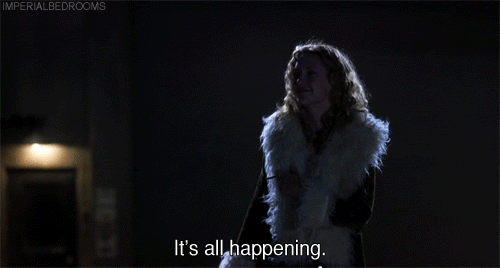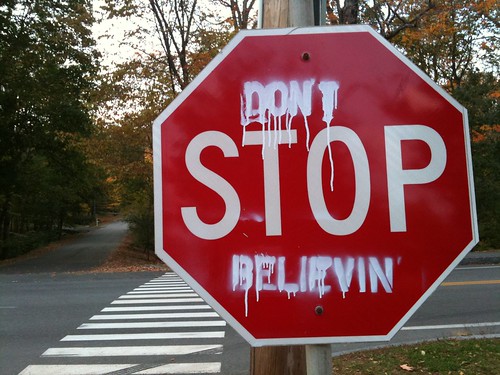When do you know that it’s time? The fourth in a month of posts about how I learned to stop worrying, buck up and do the work.
The fear caught up to me on the flight to Mississippi. I remember looking out the window as the flight came over Gulfport. I didn’t recognize anything.
I was alone, in a state I’d never seen, in a city where I knew no one. I essentially showed up with nothing more than a dream and a name — and nobody had ever heard of “Oshinsky” or “Stry.us.”
And then I landed, and my cell phone didn’t work for two days. It couldn’t find the satellites.
I felt very, very alone. I was equal parts cocky and terrified.
I remember calling a friend in Kansas City. I was in my hotel room at the IP Casino in Biloxi. I’m moving to Mississippi to do some reporting, I told her. I don’t think she believed me.
I don’t think anyone really believed me at that point, actually. My bosses, my parents, my friends — they all knew that I had the ambition to do something as audacious as Stry.us. But no one knew if I actually had the drive to will something like that into existence.
And to do it solo! That would be a challenge in itself. I knew nothing about business, and only a little about how to report from a foreign place. This was, at best, an unreasonably large challenge for a 23-year-old to take on.
The fear really hit on the drive to Mississippi. I think it happened as I got close to Biloxi, somewhere along I-10. I started to realize: I’m doing this! I’m moving here! This is actually happening!
And scarier still: The only thing between this working and this failing is you. Only you can decide how big this can be.
Hoo boy. That’s a lot for a kid to stare down. And I really was a kid: An ambitious, hungry, dumb kid.
The timing was right, but I was scared. I had a big apartment with an IKEA table and a Target futon — and I never bothered to put the futon together. I just slept on the cushions all summer. I ate peanut butter and jelly and tuna fish all summer. There wasn’t anything stable about my living conditions.
And the reporting was as strange as anything I’ll ever do. I had stories to tell, but no one knew my name. I worried that they wouldn’t talk to me. I worried that they wouldn’t take me seriously.
I think one thing that saved me was the humidity. I was always sweating in Biloxi in that 100+ degree heat. But I would’ve been sweating if it was 15 below — I was so nervous!
The humidity masked the flop sweat, I think.
And after a few introductions to sources, I started to feel confident. When I got the first story up, I felt like I had something. I could show off my work.
Better still: The people in Biloxi were used to being interviewed. They’d all been quoted somewhere or another. But they all felt like they had more stories to tell.
All of that helped keep the fear at bay. It never really left. But I settled down enough to go out and do my job, and keep going. I knew I had three months to do this reporting. Every day I lost was a day I couldn’t get back.
That helped keep me going.
I also didn’t fully realize how insane I was to be living in Mississippi by myself and doing Stry.us. I wasn’t aware of how crazy this thing was.
That helped, too.





